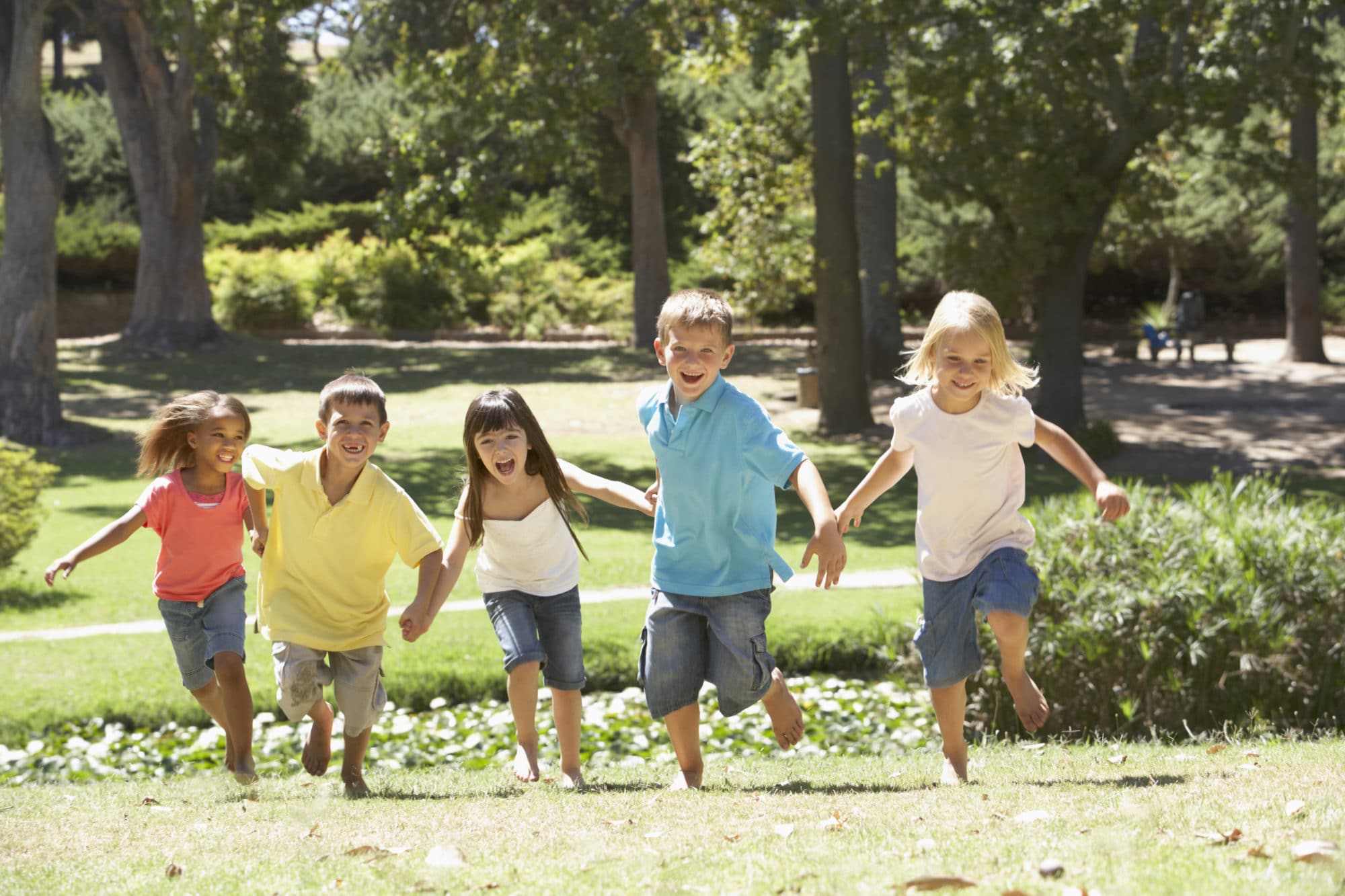
Between school, scheduled activities, and extended use of screens (phones, tablets, TVs), children are spending less and less time playing outdoors. This can have a negative effect on a child’s mood, health, and long term development. Community parks and playgrounds offer families a fun way to connect and get active. Here are just a few benefits of outdoor play:
Playing Outside Boosts Kids’ Health
Outdoor exercise in all forms is wonderful for children’s health. With more room to run and play, kids can burn off extra calories and soak up the sunshine, increasing Vitamin D within their bodies. With as little as 15 minutes of sun exposure, our bodies can create all of the Vitamin D needed for the day, which is used to support our immune systems, regulate our sleep cycles, and strengthen our bones.
There are many benefits for both children and adults to breath in fresh air on a regular basis. It promotes a fit body, helps with digestion, improves mood, lowers blood pressure, increases white blood cells, and gives you more energy.
Playground Visits Help Improve Athletic Abilities
Allowing children to play freely on the playground gives them the opportunity to develop athletic abilities without the pressure of organized sports. They’ll gain cardio endurance and strength by interacting with a variety of equipment. And through common and invented games with other children they can increase in agility, develop fine and gross motor skills, improve their balance and coordination, and of course prevent obesity.
Time Outdoors Helps Support Mental Health
Playing outdoors also can improve mental health – improving attention span, focus, and mood. It also helps kids pay attention longer and improves their focus. Children with ADHD (attention deficit hyperactivity disorder) have fewer symptoms after spending time outdoors during the school day. Physical activity allows children to release pent up energy instead of becoming fidgety, easily distracted, and/or unhappy. The endorphins and dopamine rush that accompanies physical exertion provide a mood boost and relieves stress.
Imaginative Play Develops Executive Function Skills
When kids are free to roam outside, creativity soars. Children engaged in outdoor play let their imaginations run wild. Executive function skills, which let us prioritize, plan, multitask, troubleshoot, and negotiate, are very important life skills. These are all improved when children are free from structure and allowed to figure things out for themselves, such as when playing with friends on a playground. Even after just a 20 minute walk in the park, children can concentrate better.
When children play outside, their learning and cognitive skills are developed. Many modern playgrounds now incorporate educational play equipment into the design, allowing children to stretch their minds as well as their bodies. This lets them know that learning takes place everywhere, not just in the classroom. Kids learn problem solving, life lessons, outdoor skills, and a positive attitude from outdoor play.
Children Can Develop Independence And Social Skills
Most children live very supervised and structured lives. Outdoor play gives them freedom and independence. Playgrounds are places where children can explore safely. Time without direct adult supervision lets children interact socially, make their own decisions, and they also learn to play alone independently. When kids play outdoors, they often participate in sports or other group activities. This helps children communicate naturally, and helps them build essential social skills. Since it is a less intimidating and more diverse environment, kids socialize with different kinds of children than they see every day in their classroom.
—
One of the best ways to get kids to spend time outside is to lead by example. Be sure your spring and summer plans include frequent opportunities for outdoor play at your local park or playground.